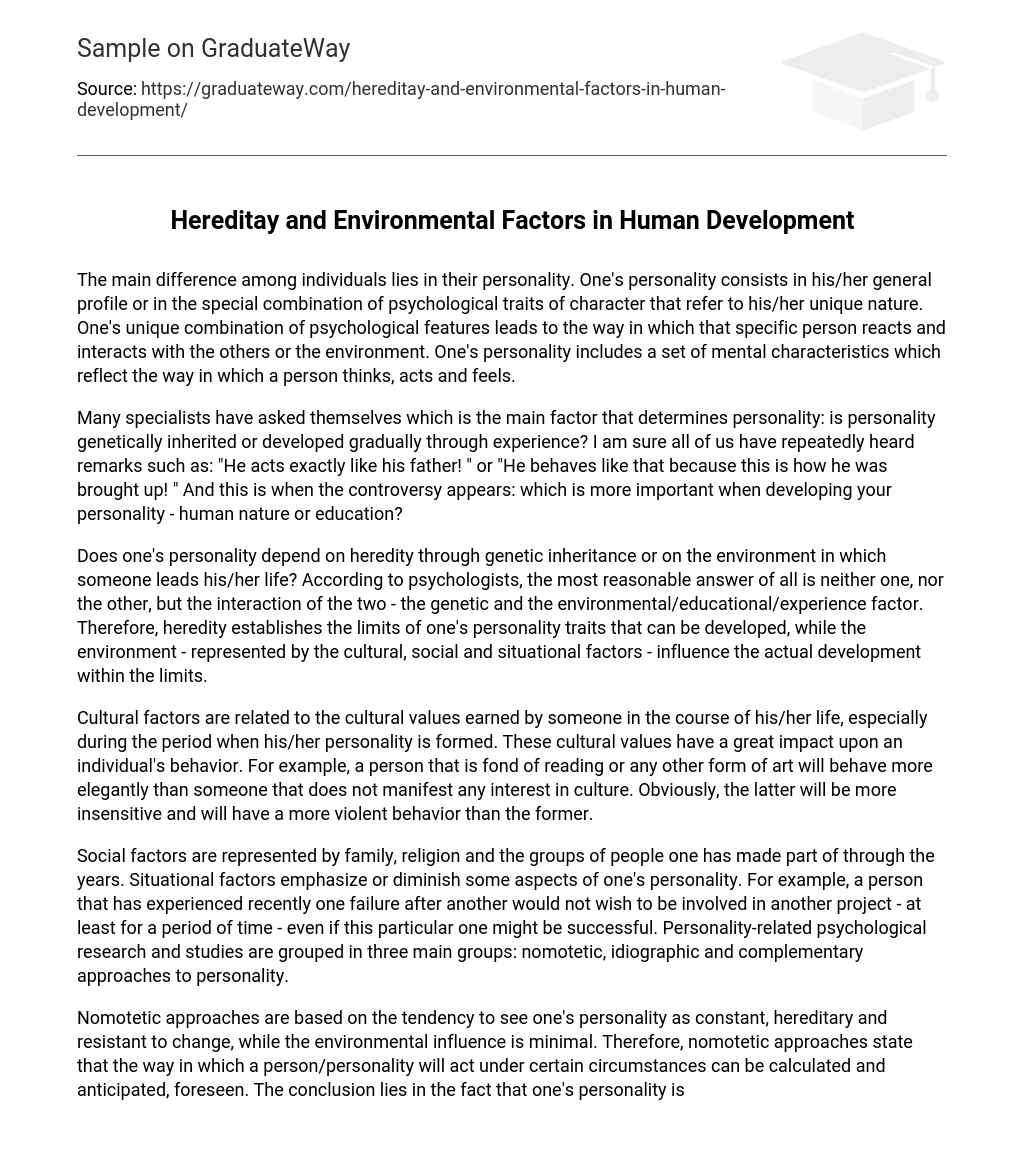The personality of an individual is characterized by their unique combination of psychological traits and behaviors, reflecting their distinctive nature. This determines how they interact with others and their environment. It encompasses a person’s thought processes, actions, and emotions.
Many experts have pondered over the primary factor that influences personality: is it inherited through genetics or shaped over time by experiences? We have all likely heard comments like “He’s just like his father!” or “His behavior is a result of his upbringing!” This is where the debate arises: when it comes to developing one’s personality, which carries more weight – inherent traits or education?
According to psychologists, an individual’s personality is not solely determined by either heredity or environment, but rather a combination of both. Genetics set the boundaries for potential personality traits, while the environment, including factors such as culture, society, and specific situations, plays a role in the actual development of these traits within those limits.
Cultural factors are linked to an individual’s acquired cultural values, which greatly impact behavior. The values obtained during one’s formative years shape personality and play a significant role in influencing how someone acts. A person who appreciates art and literature is likely to demonstrate more sophisticated behavior, contrasting with those uninterested in culture who may display insensitivity and a tendency towards violence.
Social factors, such as family, religion, and group affiliations, play a significant role in shaping an individual’s personality. Situational factors can enhance or diminish certain characteristics of a person’s character. For instance, continuous failures may make someone hesitant to start a new project, even if it has potential for success. Psychological research and studies on personality can be categorized into three main approaches: nomothetic, idiographic, and complementary.
Nomotetic approaches prioritize the belief that personality is static, inherited, and unyielding to change, with little impact from the surroundings. These approaches propose that one can forecast and expect an individual’s behavior in particular situations. Therefore, the main claim is the stability and psychological quantifiability of personality. In contrast, idiographic approaches highlight the personalized aspect of each person and their self-growth.
The process of personality development is seen as a continuous transformation. Supporters of idiographic personality development argue that people have distinct methods of reacting and responding to their environment and the individuals they encounter. Consequently, the interaction between one’s self and their social and cultural surroundings plays a crucial role in molding their personality. Psychology does not possess the tools to fully understand how an individual perceives and interacts with the world, making it unsuitable for a comprehensive evaluation of personality.
In summary, an individual’s personality is versatile, mutable, distinct, and lacks psychological measurability. The corresponding methodologies lie somewhere in the middle ground, between the nomotetic and idiographic approaches. This is where Freud’s renowned theory regarding the three components of personality – the ID, ego, and superego – can be placed. Freud’s theory aligns with the idiographic perspective as it encompasses the concept of personal growth and development. However, he disagrees with the notion that personality can be altered once childhood ends. What are your thoughts on this matter?
Are you seeing yourselves as exact copies of your parents, with predictable reactions to events, and with emotional and behavioral characteristics that were established in childhood and never altered since then? Personally, I think these theories have some truth and falsehood. Additionally, in a world as unpredictable as the one we presently inhabit, our thoughts and actions in certain situations are likely the most uncertain aspect of all (please note that I am not completely sure about this).





